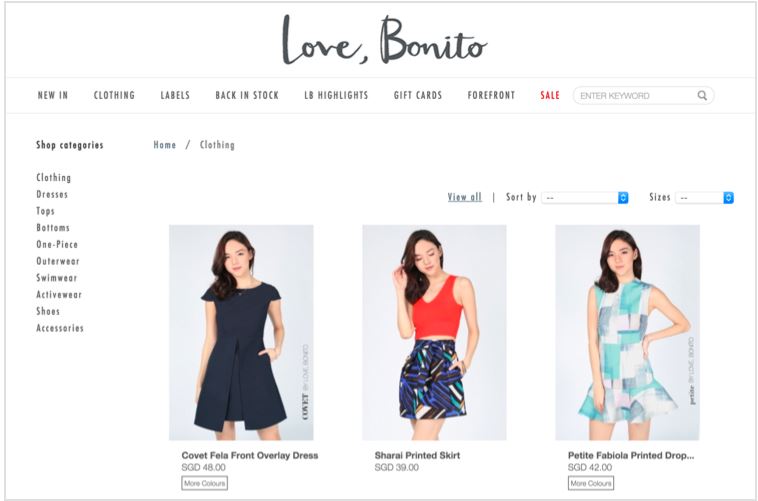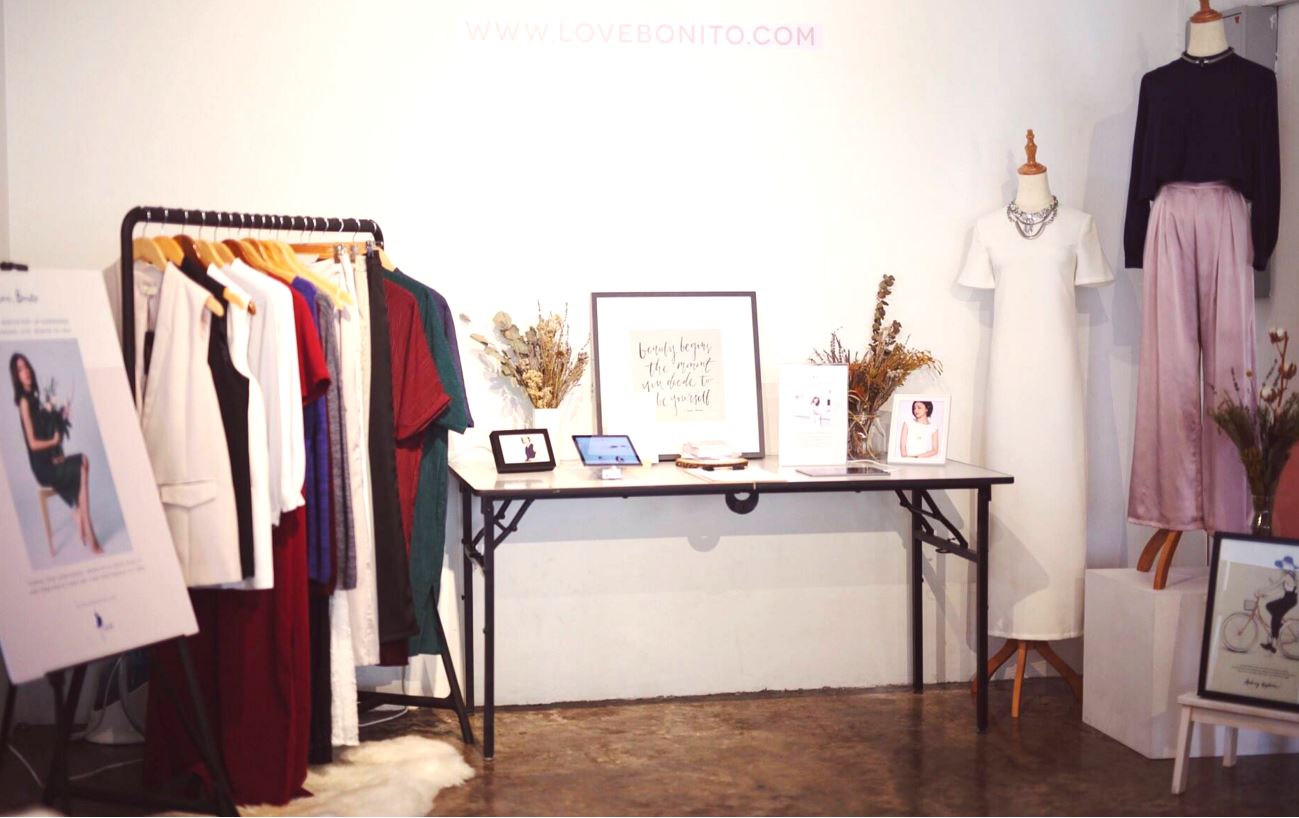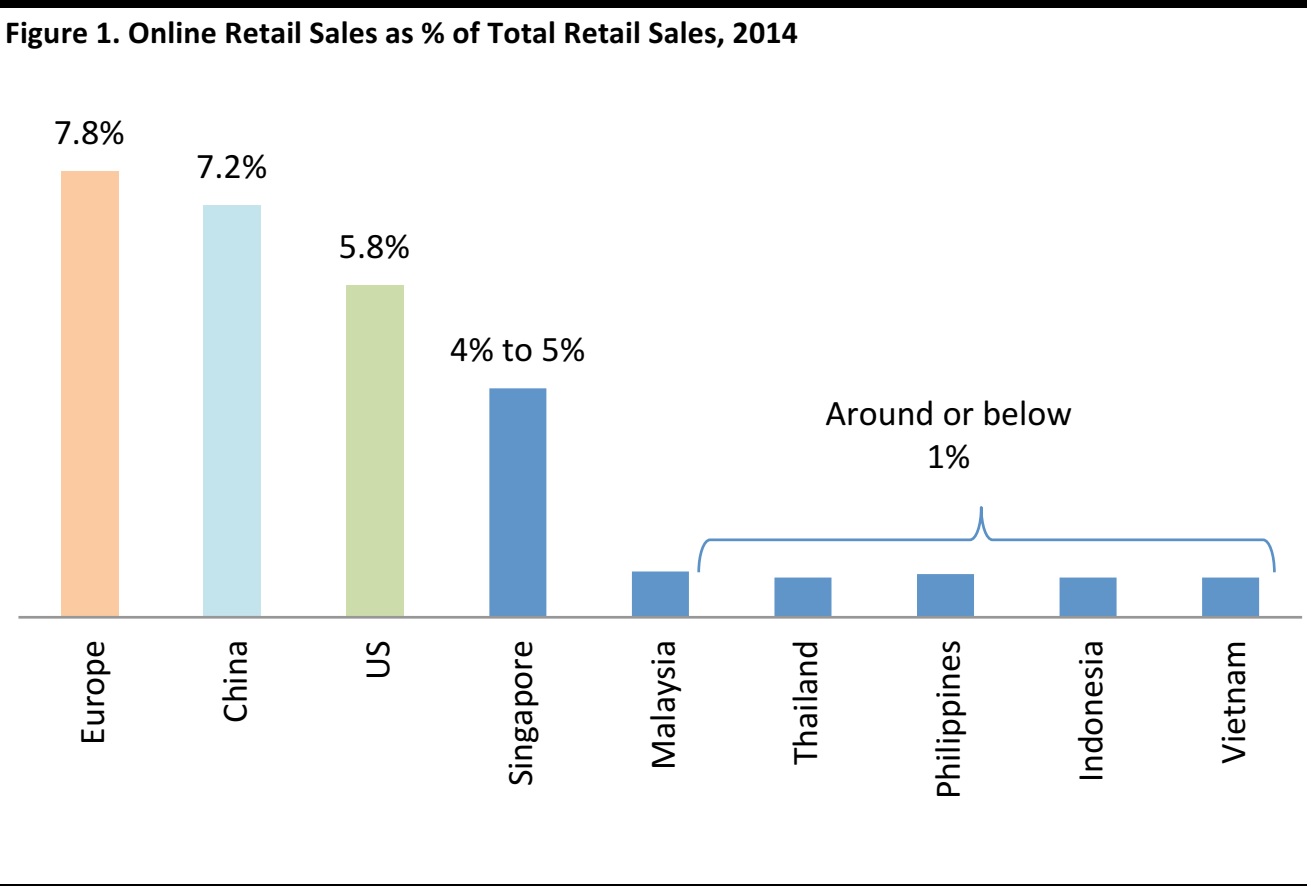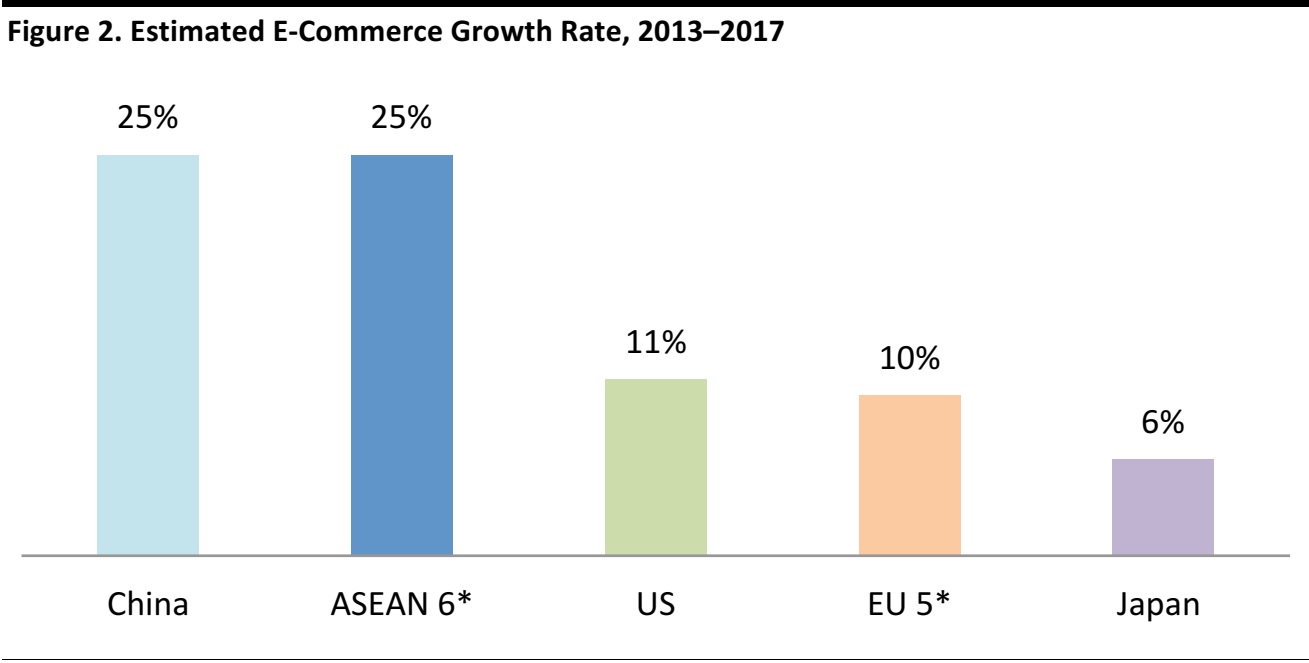
Web Developers
Women Entrepreneurs in Action The startup was born from an idea that Viola Tan and Rachel Lim had in 2006, when they were teenagers. Today, the company is reportedly generating seven-figure revenues. Lim was recently named one of “30 Under 30” in the retail and e-commerce category by Forbes for 2016.
Fast Fashion + Private Label Model The company is vertically integrated, from design to manufacture to distribution, and it carries its own private labels in basics, swimwear, petites, bridesmaids and activewear, and will soon launch maternity. The company uses a fast-fashion model, and the private label creations are directly inspired by runway looks. The company’s designers create fashionable pieces that range from $25–$50. Some 45 creative staff generate about 80–100 new styles per month.
Products Tailored to Local Asian Consumers A major differentiating point for Love, Bonito is its combination of on-trend and tailored-to-local products. Lim takes pride in her expertise in tailoring major fashion trends for Asian women and for the year-round summer weather in Southeast Asia. Since its creation, Love, Bonito’s site has become a source of style inspiration for many Singaporeans, as the company truly understands local consumers’ small physiques and their quest for comfort.
Recent O2O Expansion Experiment Given that over 95% of shopping still happens in stores in this region, the e-commerce pure play has started its offline journey by creating pop-up stores in central commercial districts in Singapore, where it hosts social events. In 2015, it also opened two physical stores in neighboring metropolitan cities Kuala Lumpur and Jakarta. Lim said of the recent expansion, “Different cities have different characteristics and customers have different behavior, so in Kuala Lumpur and Jakarta, we have physical stores so that customers can go in [and] touch and feel the clothes before buying.”
 Promising Growth Trajectory The Love, Bonito site gained popularity at the same time that the e-commerce sector in Singapore and its neighboring countries was quickly taking off. The company is likely to continue to benefit from this trend. The size of the e-commerce market in Singapore is expected to have totaled $4.4 billion in 2015, four times its size in 2010. While the market size growth was significant over this period, e-commerce in Singapore still accounted for only 4%–5% of total retail sales, versus about 7% in the US. The country is expected to catch up with other developed countries, though, and many e-commerce startups are emerging at the same time that consumers are showing a growing preference for shopping online.
Promising Growth Trajectory The Love, Bonito site gained popularity at the same time that the e-commerce sector in Singapore and its neighboring countries was quickly taking off. The company is likely to continue to benefit from this trend. The size of the e-commerce market in Singapore is expected to have totaled $4.4 billion in 2015, four times its size in 2010. While the market size growth was significant over this period, e-commerce in Singapore still accounted for only 4%–5% of total retail sales, versus about 7% in the US. The country is expected to catch up with other developed countries, though, and many e-commerce startups are emerging at the same time that consumers are showing a growing preference for shopping online.


 Promising Growth Trajectory The Love, Bonito site gained popularity at the same time that the e-commerce sector in Singapore and its neighboring countries was quickly taking off. The company is likely to continue to benefit from this trend. The size of the e-commerce market in Singapore is expected to have totaled $4.4 billion in 2015, four times its size in 2010. While the market size growth was significant over this period, e-commerce in Singapore still accounted for only 4%–5% of total retail sales, versus about 7% in the US. The country is expected to catch up with other developed countries, though, and many e-commerce startups are emerging at the same time that consumers are showing a growing preference for shopping online.
Promising Growth Trajectory The Love, Bonito site gained popularity at the same time that the e-commerce sector in Singapore and its neighboring countries was quickly taking off. The company is likely to continue to benefit from this trend. The size of the e-commerce market in Singapore is expected to have totaled $4.4 billion in 2015, four times its size in 2010. While the market size growth was significant over this period, e-commerce in Singapore still accounted for only 4%–5% of total retail sales, versus about 7% in the US. The country is expected to catch up with other developed countries, though, and many e-commerce startups are emerging at the same time that consumers are showing a growing preference for shopping online.

